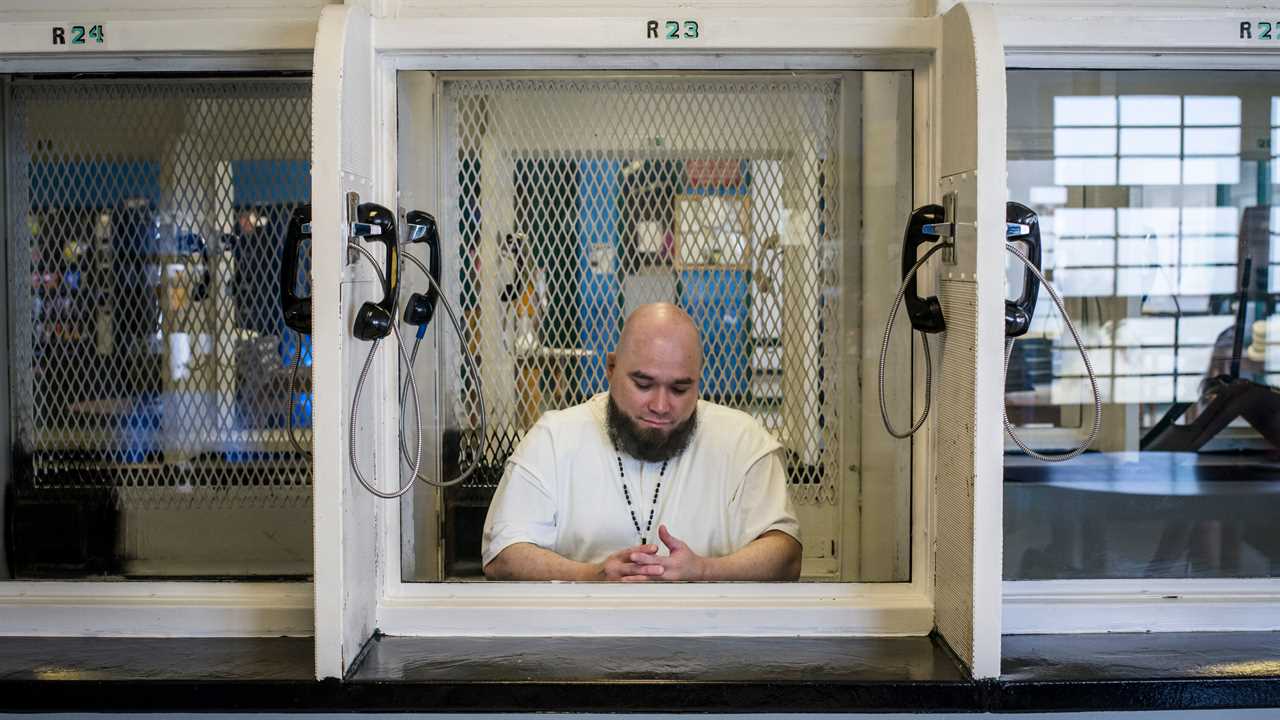
WASHINGTON — The Supreme Court on Wednesday stayed the execution of a Texas inmate whose request that his pastor be able to touch and pray aloud with him in the death chamber had been rejected by prison authorities.
The court also agreed to review the case on its merits, without noted dissents. The court’s brief order said the case would be argued in October or November.
The stay was the latest in a string of Supreme Court rulings on the role that spiritual advisers may play in death row inmates’ final moments.
The new case concerned John Henry Ramirez, who was sentenced to death for the 2004 murder of a convenience store worker. Mr. Ramirez stabbed the worker, Pablo Castro, 29 times in a robbery that yielded $1.25.
In prison, Mr. Ramirez forged a relationship with Dana Moore, the pastor of Second Baptist Church in Corpus Christi. Mr. Ramirez asked that his pastor be allowed to hold his hand or touch his shoulder or foot and to pray out loud with him as he dies.
When prison officials rejected his request, citing security concerns, Mr. Ramirez sued, saying the policy violated his right to exercise his faith at the moment when, as his lawyer put it in a brief, “most Christians believe they will either ascend to heaven or descend to hell — in other words, when religious instruction and practice is most needed.”
Judge David Hittner of the Federal District Court in Houston ruled against Mr. Ramirez, saying it was enough that prison officials intended to allow Mr. Moore “to stand nearby during the execution.” Courts should not become entangled, Judge Hittner wrote, in the minutia of prison security procedures.
A divided three-judge panel of the U.S. Court of Appeals for the Fifth Circuit, in New Orleans, upheld the lower court’s decision. In dissent, Judge James L. Dennis questioned Texas’ new policy, which permitted spiritual advisers to be present in the death chamber but prohibited them from touching or praying aloud with the condemned inmates.
“What purpose is there for allowing a spiritual adviser, like a pastor, to be present in the execution chamber if that pastor is prohibited from attending to the spiritual needs of the condemned during the final moments of his life, through audible prayer, physical touch, or otherwise?” Judge Dennis wrote. “At the end of life, what does a pastor do but minister to and comfort his parishioner?”
In urging the justices to deny a stay of execution, Ken Paxton, Texas’ attorney general, a Republican, said Mr. Ramirez had engaged in litigation gamesmanship. For instance, Mr. Paxton wrote, Mr. Ramirez had at one point asked only that his pastor be present and need not touch him.
The Supreme Court has taken a variety of approaches to suits in which death row inmates asked that their spiritual advisers be present to comfort them during their executions,
In 2019, for instance, the court allowed by a 5-to-4 vote the execution of an Alabama inmate, Domineque Ray, a Muslim whose request that his imam be present had been denied. At the time, Alabama allowed only a Christian chaplain employed by the prison system to offer spiritual guidance to condemned inmates during their last moments.
Justice Elena Kagan, writing for the dissenters in 2019, said the majority was “profoundly wrong.” Under Alabama’s policy, she wrote, “a Christian prisoner may have a minister of his own faith accompany him into the execution chamber to say his last rites.”
“But if an inmate practices a different religion — whether Islam, Judaism or any other — he may not die with a minister of his own faith by his side,” Justice Kagan wrote.
A few weeks later, the court confronted a similar case from Texas and came to a different conclusion, staying the execution of a Buddhist inmate whose request that his spiritual adviser be present in the execution chamber had been denied.
In a brief, unsigned order, the court said that Texas could not execute the inmate, Patrick H. Murphy, “unless the state permits Murphy’s Buddhist spiritual adviser or another Buddhist reverend of the state’s choosing to accompany Murphy in the execution chamber during the execution.”
In a concurring opinion, Justice Brett M. Kavanaugh wrote that the state’s policy of allowing only Christian and Muslim chaplains to attend executions amounted to unconstitutional religious discrimination. “The government may not discriminate against religion generally or against particular religious denominations,” he wrote.
Justice Kavanaugh wrote that states could exclude advisers of all denominations from the execution chamber, but may not allow only some to be present.
Alabama responded by excluding all spiritual advisers from the death chamber. In February, the Supreme Court nonetheless let stand a ruling that halted the execution of an Alabama inmate, Willie B. Smith III, a Christian, unless the state allowed his pastor to be present in the death chamber.
“Alabama has not carried its burden of showing that the exclusion of all clergy members from the execution chamber is necessary to ensure prison security,” Justice Kagan wrote for four justices in a concurring opinion. “So the state cannot now execute Smith without his pastor present, to ease what Smith calls the ‘transition between the worlds of the living and the dead.’”
In a dissent in the Alabama case, Justice Kavanaugh wrote that “the state’s policy is nondiscriminatory and, in my view, serves the state’s compelling interests in ensuring the safety, security and solemnity of the execution room.”
Justice Kavanaugh added some practical advice.
“States that want to avoid months or years of litigation delays,” he wrote, “should figure out a way to allow spiritual advisers into the execution room, as other states and the federal government have done. Doing so not only would satisfy inmates’ requests, but also would avoid still further delays and bring long overdue closure for victims’ families.”
Did you miss our previous article...
https://trendinginthenews.com/usa-politics/democrats-and-lobbyists-gird-for-battle-over-farreaching-tax-increases






